The triveni is a form that Gulzar began experimenting with in the mid-1960s. It gets its name from the fact that it is composed of three lines. It is different from other three-line forms like the haiku and senryu, which have a fixed limit on the syllable count and in essence describes one image.
As Gulzar says, “I called it triveni because the first two lines meet like the Ganga and the Yamuna and complete a thought, it forms a poem on its own. But beneath the two there is the subterranean flow of another, the Saraswati. Hidden. Not visible to the eye. The triveni intends to reveal the Saraswati. The third line, lost in the first two, either changes the meaning of the poem altogether, its focus, or gives it a surprising twist, in the process creating an entirely new poem altogether.’
Trivenis were first published in the Hindi magazine Sarika, in 1972-73, when Kamleshwar was its editor. In the forty years since then, the form has been widely disseminated and used by a number of poets.
Presenting: ten trivenis by Gulzar.
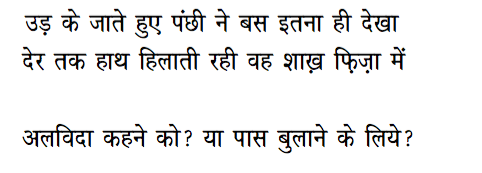
The bird in flight saw only this:
A branch waving its arm for longTo say goodbye? Or to call it back?
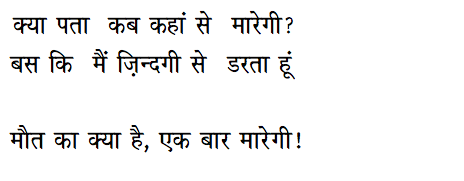
Wonder how and where it will attack
It’s only life I am scared ofDeath – well, it will strike just once.
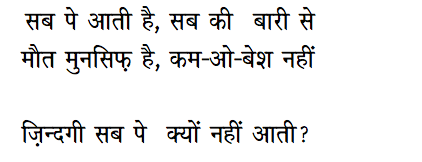
It visits us all, without fail, when it’s time
Death is just – there’s nothing less or more about itWhy doesn’t life visit everyone in all fairness?
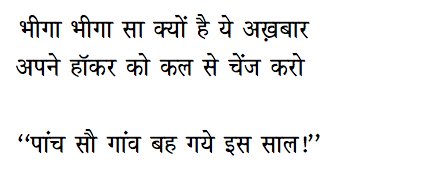
Why is the newspaper wet today?
Time to change the hawker from tomorrow.‘Five hundred villages washed away in floods.’
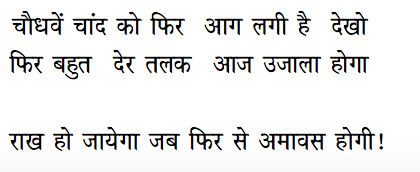
Look! The full moon, all afire
Long will it be radiant tonight!Only to turn to ash when it’s amavas.
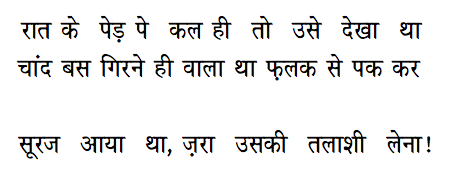
Had seen it perched on night’s tree only yesterday
The moon, ripe, about to fall from the skyThe sun had come – search him!
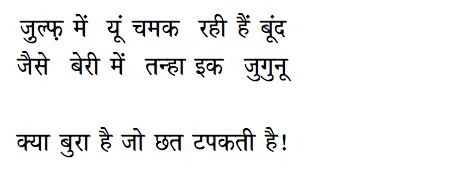
Like a lonesome firefly in a berry bush
A drop glitters in the cascading hairWhy complain of a leaking roof!
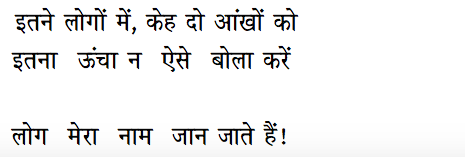
Tell your eyes not to raise their voice thus
In the midst of such a crowdPeople begin to recognise me by name

The gulmohar on the banks of dusk,
Like vermilion in the parting of Laila’s hairPoor thing – she has been converted!

Neither tiffs at dawn, nor dusk’s restlessness
Fire neither in the kitchen, nor in the heartHow peacefully sad I live at home
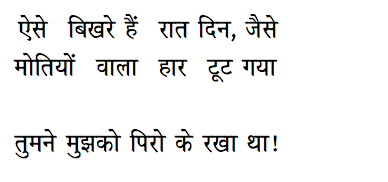
Night and day lie scattered as if
A necklace of pearls has come undoneYou had kept me pieced together

Delved deep into the body and soul
And turn this bag of rags upside downWho knows! A battered god might emerge!
Buy an annual Scroll Membership to support independent journalism and get special benefits.

Our journalism is for everyone. But you can get special privileges by buying an annual Scroll Membership. Sign up today!
